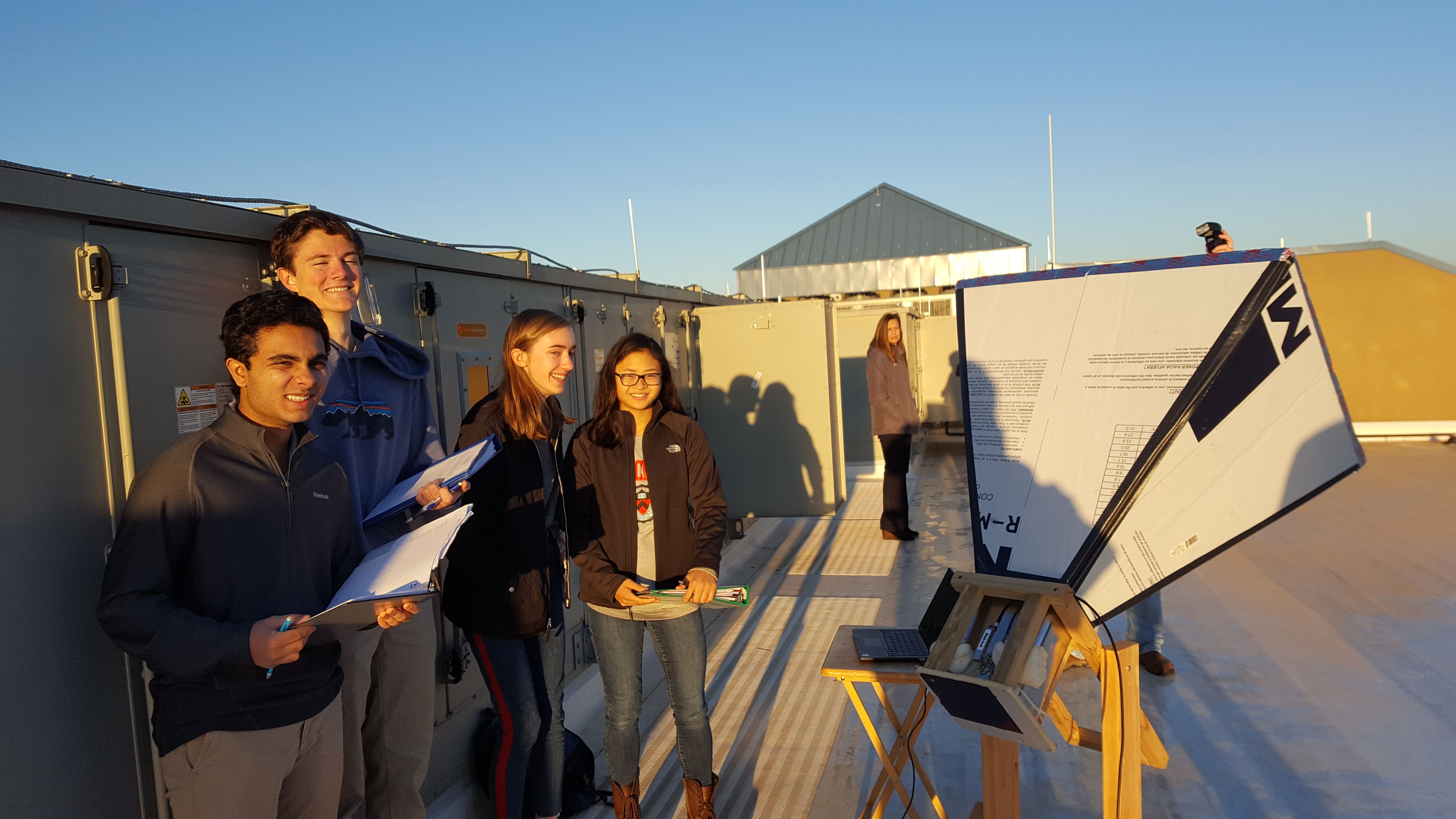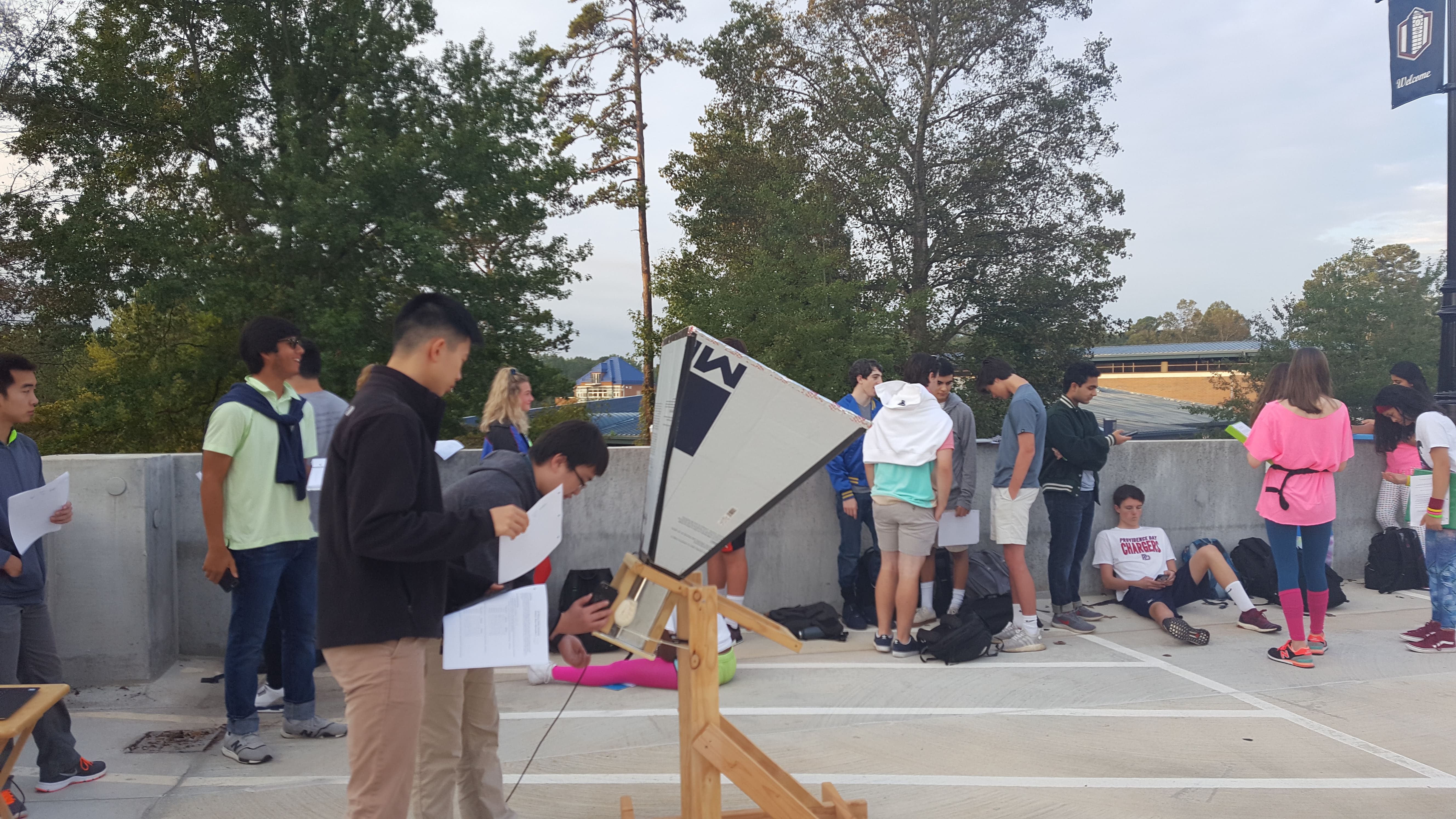cra
Classroom Radio Astronomy
NOTE: THIS WEBSITE IS OUTDATED. THE NEW WEBSITE CAN BE FOUND HERE: https://wvurail.org/dspira-lessons/
Classroom Radio Astronomy
 This site provides support for teachers interested in doing radio astronomy in their classrooms, or anyone who wants to build a horn radio telescope. It is developed and maintained by teachers who have participated in the Digitial Signal Processing in Radio Astronomy (DSPIRA) program, which is an NSF funded Research Experiences for Teachers (RET) program at the Lane Department of Computer Science and Engineering at West Virginia University. The Principal Investigators are Professors Natalia Schmid and Kevin Bandura. The Green Bank Observatory coordinator is Richard Prestage.
This site provides support for teachers interested in doing radio astronomy in their classrooms, or anyone who wants to build a horn radio telescope. It is developed and maintained by teachers who have participated in the Digitial Signal Processing in Radio Astronomy (DSPIRA) program, which is an NSF funded Research Experiences for Teachers (RET) program at the Lane Department of Computer Science and Engineering at West Virginia University. The Principal Investigators are Professors Natalia Schmid and Kevin Bandura. The Green Bank Observatory coordinator is Richard Prestage.
This site provides information on how to construct and operate a horn radio telescope as well as lesson plans and ideas on incorporating radio astronomy in the classroom.

Radio Telescope System Construction
- Horn Construction:
-
Obtaining a Low Noise Amplifier
The system will need a low noise amplifier for the hydrogen line (21cm) at a 1420 MHz center frequency. There are a few options for the LNA that is used with these horn telescopes:
a. Build the LNA yourself. You will need to purchase all the components and solder the board together. This is a fun project in itself. All the schematics/hardware etc. are open and public.
- Circuit schematics can be found here.
- A detailed list of LNA circuit components and how to order them
- The circuit board for this project can be found here: https://oshpark.com/shared_projects/qHhrAlnI
b. Use a different amplifier system using discrete components. Several options can be found through a search online. This is more expensive, but will be much easier. Here are a few suggestions:
- https://www.nooelec.com/store/sawbird-h1-barebones.html
- https://www.tindie.com/products/gpio/radio-astronomy-hydrogen-line-low-noise-amplifier/
Radio Telescope Operation
-
Hardware and Software Needs for Operating the Horn Telescope
-
Instructions for Operating the Gnuradio spectrometer_w_cal.grc Program and Collecting Data
-
Instructions for Building a Gnuradio Spectrometer for the Horn Telescope
Lesson Plans and Teaching Materials
-
Velocity Curve Lessons